News
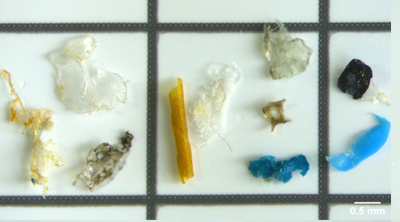
Pollution by microplastics is a global environmental problem, present in all natural ecosystems (water, soil and air) and which concerns not only the scientific community, but also society in general. Microplastics are non-biodegradable synthetic particles with a diameter of less than 5 mm, which can enter natural ecosystems in several ways, one of the main ways being water treatment plants.
More information from this study can be found at the following scientific paper:
TV3, the Catalan public television, echoed this news at TN Comarques: https://www.ccma.cat/tv3/alacarta/telenoticies-comarques/un-estudi-de-la-urv-questiona-el-tractament-dels-microplastics-a-les-depuradores/video/6244264/
Posted on 10-10-2023
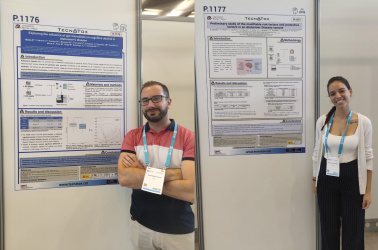
Both Nerea and David conduct their research in the framework of the official project entitled DEM-BIOTA (DEMentias and microBIOTA composition: Microbiota in dementias. Is possible to revert the dementia symptoms reverting the microbiota composition?), which is led by their PhD supervisor Dr. Marga Torrente.
Posted on 10-10-2023
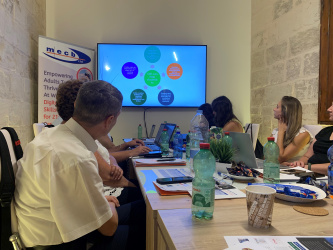
On 3-5 October, we have been in Malta learning and sharing experiences about circular economy education and entrepreneurship at the LTTA hosted by the MECB in the framework of the DISCERN Erasmus Plus Project. The training was focused on:
- Industry Green transformation – circular design of products
- Resource-intensive sectors transformation – Plastic
- Towards biodiversity and ecological transformation of companies
- Disruptive innovation management for monitoring and optimizing circular economy Performance
- Rethinking companies’ business model for sustainable development & business plan
- Public and private start-up financing opportunities for sustainable growth.
More information about the project: https://discern.erasmus.site/
Posted on 06-10-2023
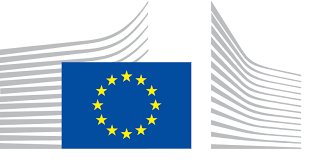
Posted on 26-09-2023

The Erasmus + Project “DISCERN-A customised Digital Space to Foster Circular Economy Entrepreneurship with SMEs” has released the fourth newsletter. We invite you to read it in Spanish or English by clicking on this news.
Posted on 19-09-2023
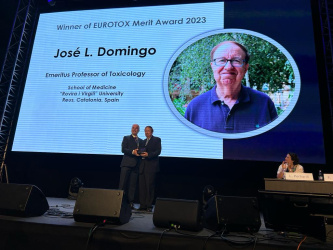
EUROTOX Congress 2023, which took place in September 10-13, was the scenario where Prof. José L. Domingo, Emeritus Professor and co-Founder of TecnATox, received the 2023 EUROTOX Merit Award.
This Award, created by the Federation of European Toxicologists and European Societies of Toxicology, is presented annually to recognize professionals with a distinguished career in European toxicology. In this particular case, it was based on his professional career and his contributions in the field, as well as his extensive list of European and International publications.
Posted on 13-09-2023

Project Title: “DIGULI - Microplastics: dietary intake, impact on gut and promotion on liver damage.
Details of the call:
Posted on 12-09-2023

September is World Alzheimer's Month, and every year World Alzheimer's Day takes place on 21 September. A couple of days before, on 19 September, Universitat Rovira i Virgili, Associació d’Alzheimer i Altres Trastorns Neurocognitius de Reus i Baix Camp and Institut Lerín Neurocognitive, will organize a meeting to highlight the impact of Alzheimer's Disease in the society and the importance to conduct research on this field.
Two researchers of TecnAtox have been invited by the organization of the meeting, which will take place at the School of Medicine (Reus). Dr. Mònica Bulló, Professor of Nutrition and Metabolism and ICREA Academia Researcher, will present the conference Nutrition and lifestyle in the onset and progression of deterioration cognitive and dementias. Afterwards, Dr. Margarita Torrente, Professor of Psychobiology will do a conference entitled Research on risk factors in dementia: the role of the microbiota (DEMBIOTA project).
The full program can be uploaded here.
Posted on 08-09-2023
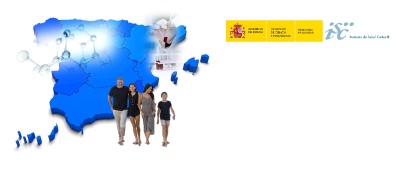
TecnATox will lead one of the 5 technical working groups of experts associated with the Spanish Permanent Interministerial Commission for Human biological health surveillance (CIBMH).
The Technical Working Groups will be multidisciplinary and will address the complexity that human biomonitoring studies require. They will have the participation of scientific experts of recognized prestige from the autonomous communities, the academic field, public research organizations and other institutions.
More information:
Posted on 04-07-2023
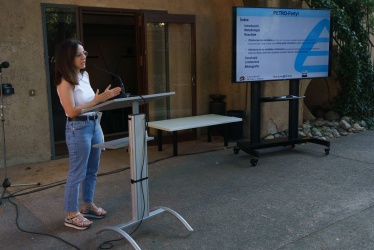
Posted on 27-06-2023




